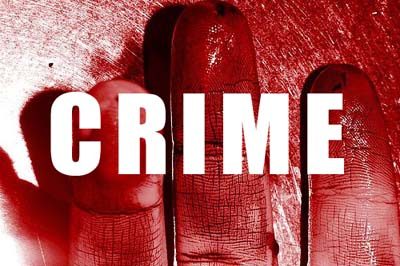Human Rights Watch calls on Philippines to dismantle "death squads"
 Manila - Human Rights Watch on Tuesday urged the Philippine government to investigate and dismantle an alleged "death squad" that has killed more than 800 people in the past decade in one of the country's most prosperous cities.
Manila - Human Rights Watch on Tuesday urged the Philippine government to investigate and dismantle an alleged "death squad" that has killed more than 800 people in the past decade in one of the country's most prosperous cities.
The New York-based rights watchdog warned that police officers and local government officials appeared to be involved in the targeted killings of alleged drug dealers, petty criminals and even street children in Davao City, 990 kilometres south of Manila.
In its 103-page report, You Can Die Any Time: Death Squad Killings in Mindanao, Human Rights Watch said the murders have steadily increased in past years amid a lack of any effort by authorities to investigate the killings and to bring those responsible to justice.
"The hundreds of targeted killings in Davao City in recent years are clearly not random events but the result of planned hits by a death squad that involves police officers and local officials," said Kenneth Roth, executive director of Human Rights Watch.
"The police consistently fail to bring the perpetrators to justice while the local government cheers from the sidelines," he added.
According to the report, the Philippines' Coalition Against Summary Execution has documented 814 death squad killings in Davao City from August 19, 1998, to February 1 this year.
"The number of victims of targeted killings in Davao City has steadily increased in the past decade," the report said. "From two reported cases in 1998, the number rose to 98 in 2003, and 124 in 2008. In 2009, 33 targeted killings were reported in January alone."
Human Rights Watch warned that police inaction and the apparent approval of some local government officials of the death squad's activities have "lead those carrying out the killings to conclude that they will suffer no penalty for their actions."
It also expressed concern over reports of an increasing number of targeted killings outside Davao City, including the nearby cities of Digos and General Santos as well as Cebu City, a bustling metropolis in the central Philippines.
According to the report, Cebu City Mayor Tomas Osmena admitted that more than 200 killings with similar patterns to the Davao death squad murders have been recorded in his city from December 2004 to September 2008.
Human Rights Watch said that based on testimonies by witnesses and family members of victims, Davao death squad assailants usually arrive in twos or threes on a motorcycle without a license plate.
"They shoot or stab their victim without warning, often in broad daylight with little regard for those witnessing the crime," the report said.
Witnesses said police often arrive late, even if the nearest police station is just minutes away.
The report said the death squad members were either former communist rebels or young men who themselves were death squad targets but joined the group to avoid being killed.
Their handlers, usually police or former police, provide the members with training, weapons, ammunition, motorcycles and information about targets, it said.
Human Rights Watch noted that death squad members often use .45-calibre handguns, "a weapon commonly used by the police but prohibitively expensive for gang members or common criminals."
Roth lamented that Davao City Mayor Rodrigo Duterte, who has made numerous statements attempting to justify the killings of suspected criminals, has even been appointed as President Gloria Macapagal Arroyo's adviser on peace and order issues.
"Arroyo has been taking security advice from someone who openly advocates murder to bring peace and prosperity, but this needs to stop," he said. "The Arroyo government should send a clear message to local officials and the police that the killings of petty criminals, drug users and street children will not be tolerated." (dpa)